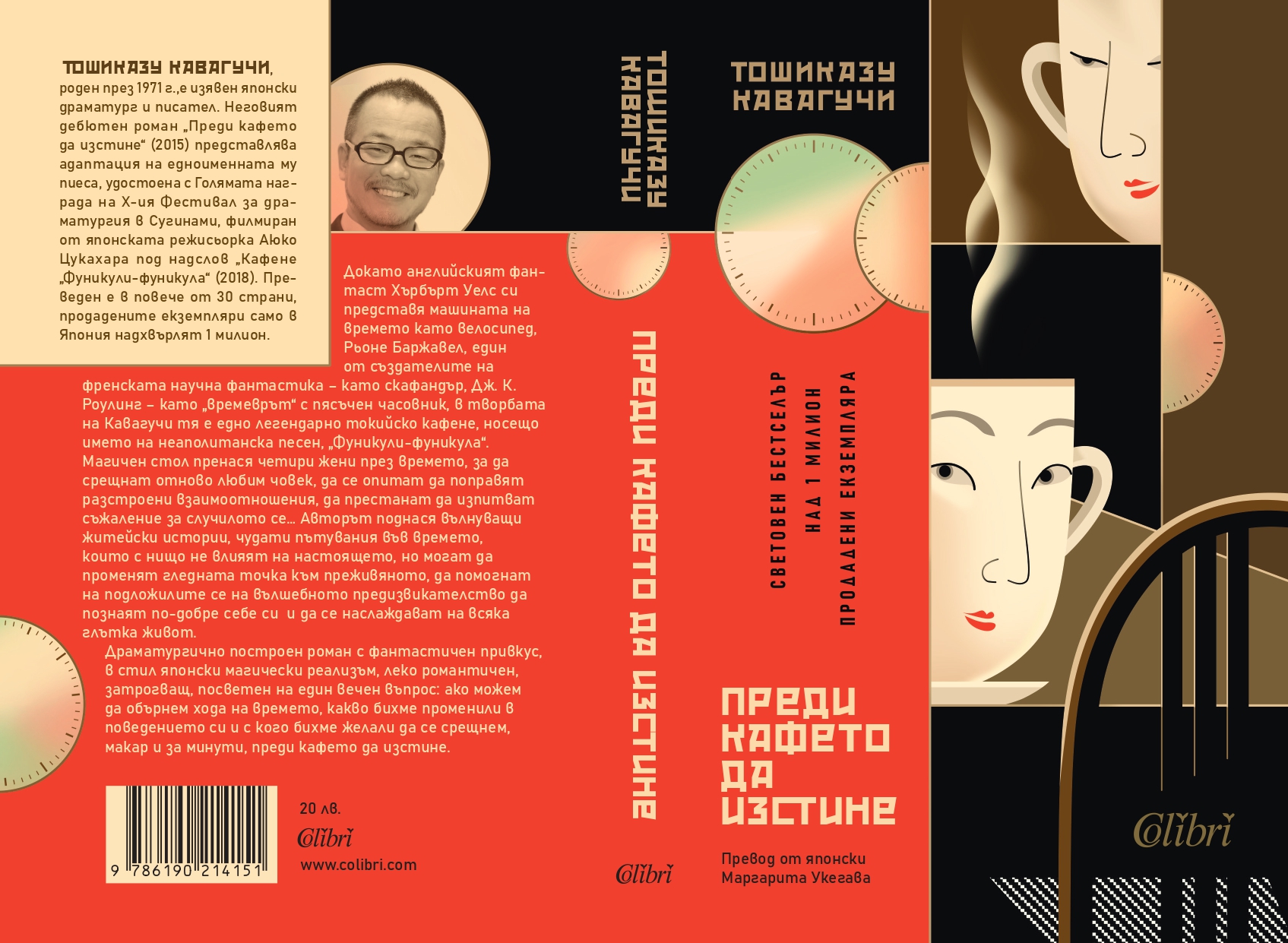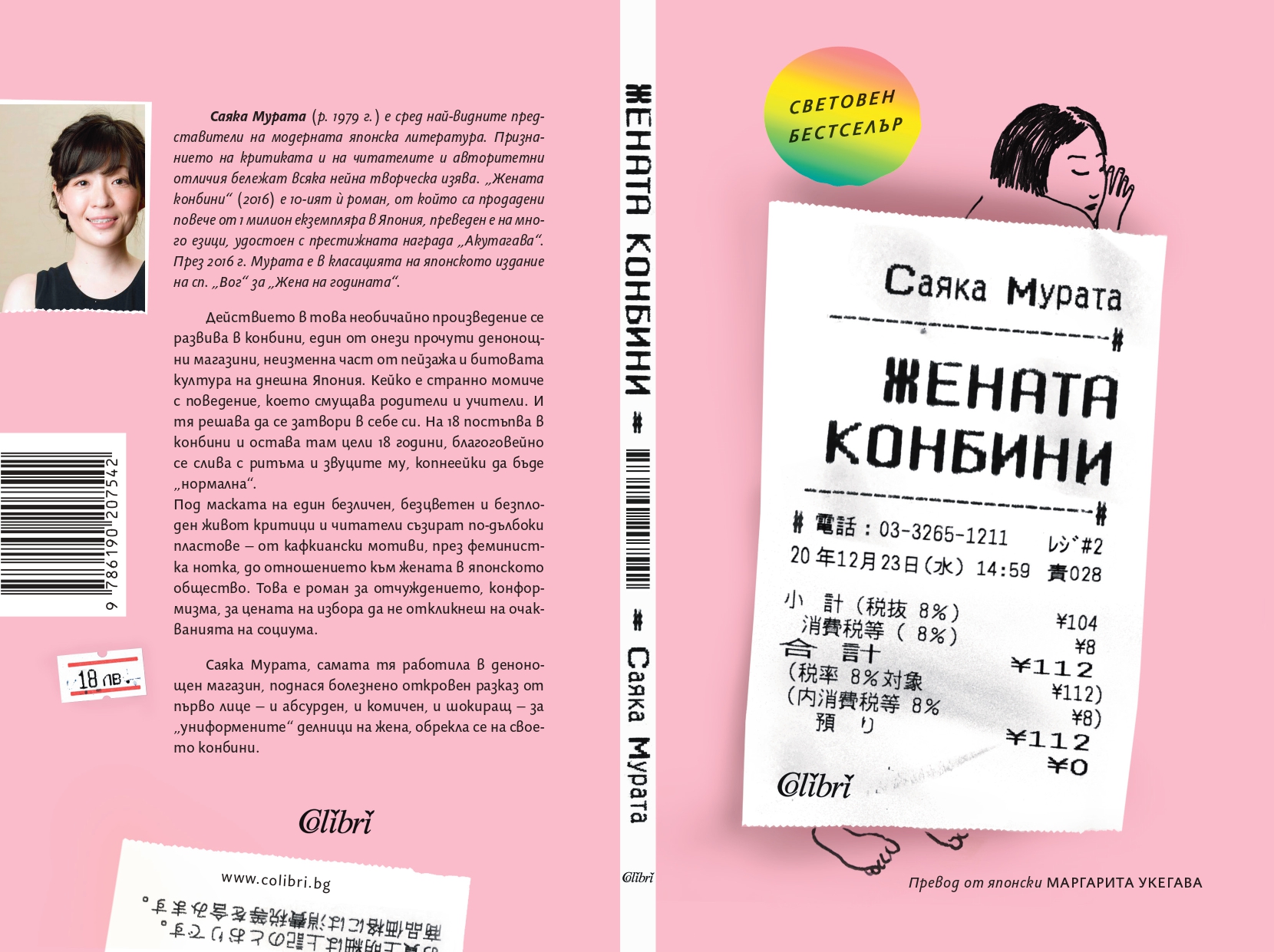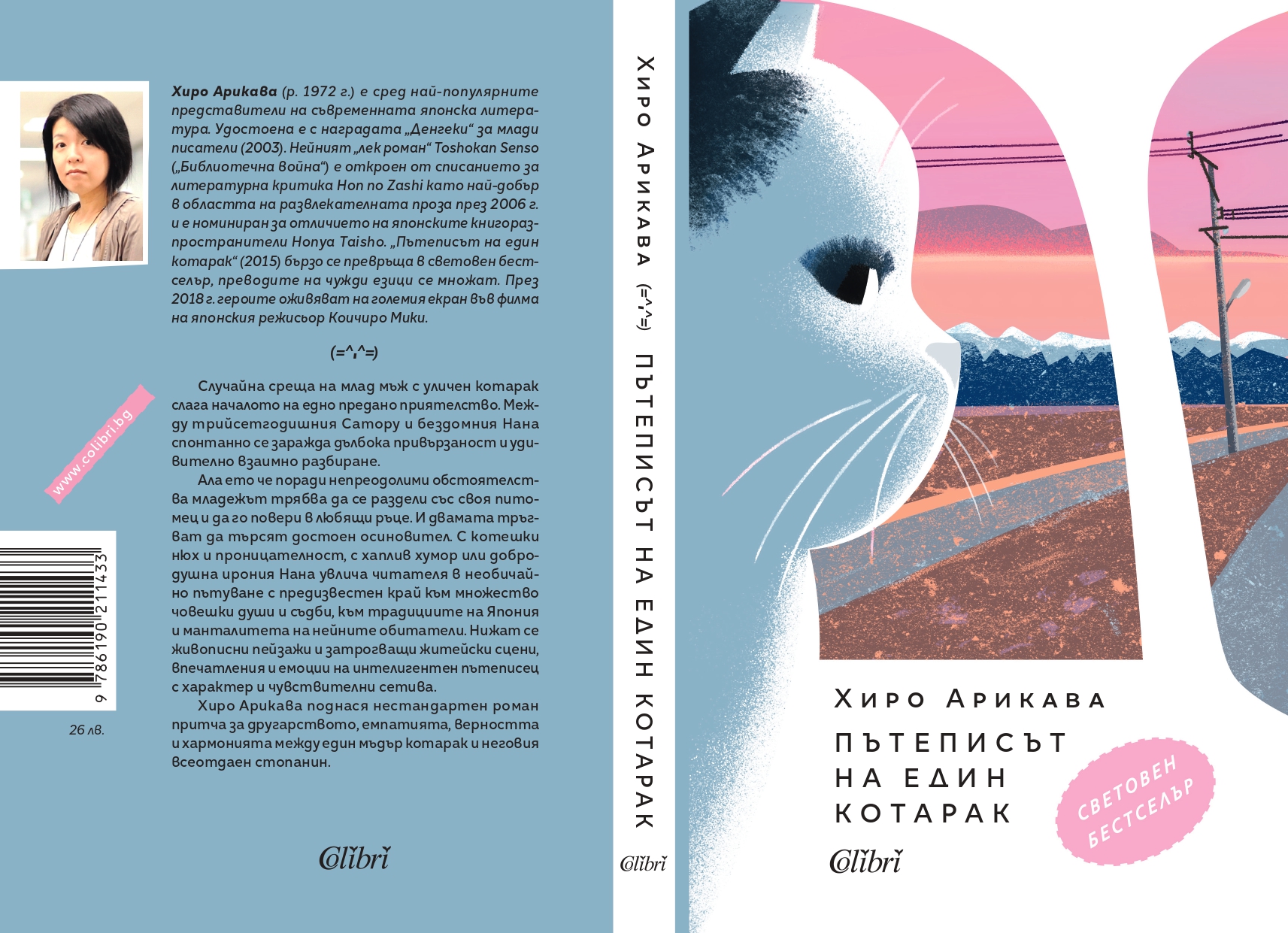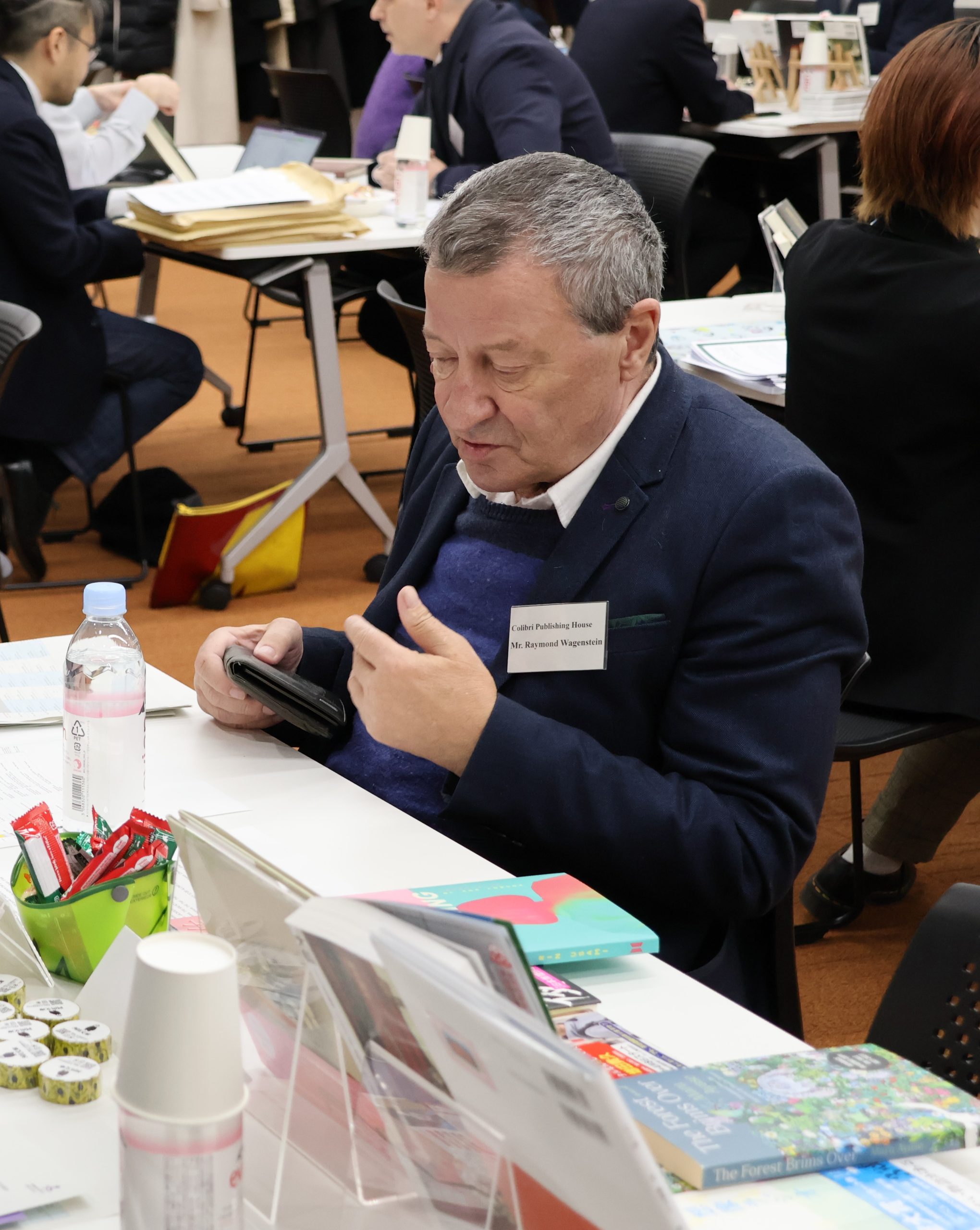New Opportunities to Learn about Japanese Literature and Publishing
Raymond Wagenstein
President

Eager to Learn about the Japanese Literary and Publishing World
Founded in 1990, Colibri is a Bulgarian publisher with a catalog that includes not only fiction but also nonfiction and books for children. “Our unconditional love of literature, uncompromising professionalism, and responsible approach toward our customers and partners have made Colibri a leading figure in the Bulgarian publishing industry,” says Raymond Wagenstein, who represented the house on the recent editors’ tour of Japan (Central and Eastern European Editors’ Visit).
In Bulgaria, Wagenstein explains, Japanese books are particularly popular among female readers. The most popular author is Haruki Murakami, but Colibri publishes works by many other writers as well. Kawaguchi Toshikazu’s Kōhī ga samenai uchi ni (Before the Coffee Gets Cold), Kawakami Mieko’s Natsu monogatari (Breasts and Eggs), Murata Sayaka’s Konbini ningen (Convenience Store Woman) and Arikawa Hiro’s Tabi neko repōto (The Traveling Cat Chronicles) are just a few of the works from Japan that Colibri has brought to Bulgarian readers.
Despite this ongoing connection to Japan through literature, Wagenstein had never personally visited the country before. In his comments before departure, he described himself as “eager to learn as much as possible about Japanese literature and publishing.”

Bulgarian edition of Before the Coffee Gets Cold by Kawaguchi Toshikazu

Bulgarian edition of Breasts and Eggs by Kawakami Mieko

Bulgarian edition of Convenience Store Woman by Murata Sayaka

Bulgarian edition of The Traveling Cat Chronicles by Arikawa Hiro
Informative and Memorable Lectures on Japanese Literature and Publishing
In Tokyo, Kyoto, and Osaka, Wagenstein and the other participants enjoyed the “very interesting and useful” visits to publishers, bookstores, and libraries; lectures on Japanese publishing and book distribution, and meetings with publishers and agents. Along the way, they learned about Japanese history and culture. “It was a rich and informative program,” says Wagenstein. “The staff who accompanied us were competent and helpful, providing all the interpretation we needed. All members of the group had very positive opinions of this Japan Foundation initiative.”
The introductory sessions, which included lectures offering overviews of Japanese literature and the country’s publishing and book distribution system, were the most memorable parts of the visit, Wagenstein recalls, and left the deepest impression on him.

At a networking and social event with Japanese publishers
Future Plans for Introducing New Japanese Literature to Bulgaria
Planning is now underway for Colibri to publish several books that Wagenstein became interested in after participating in the program, including Kawamura Genki’s Sekai kara neko ga kietanara (If Cats Disappeared from the World), Murakami Haruki’s Machi to sono futashikana kabe (The City and Its Uncertain Walls) and Murata Sayaka’s Chikyū seijin (Earthlings). “Based on the information and materials I gained in the program, I look forward to discussing future plans for translating and publishing Japanese works in greater detail at upcoming editorial committee meetings,” Wagenstein reports.
See Also....
-

Slovakia
Darina Zaicova
SLOVART Publishing House#CentralAndEasternEuropeanEditors2024 -

Albania
OMBRA GVG Publishing House
Vasilika Tafa#Publisher Spotlight -

Croatia
Nermina Husko
Hena com#CentralAndEasternEuropeanEditors2024 -

Montenegro
Nikola Kasalica
Ouroboros#CentralAndEasternEuropeanEditors2024
